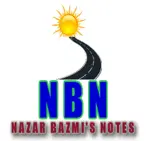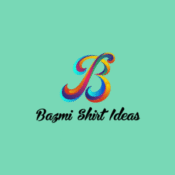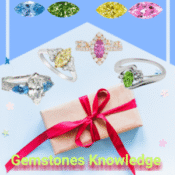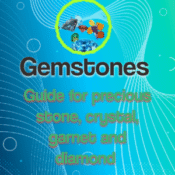Welcome to my blog post. Here you will learn an essay in question-and-answer form.
✒️ “Every question opens a door; every answer is a step deeper into the world of stories, symbols, and soul.”
Introduction
Of Marriage and Single Life by Francis Bacon: Questions and Answers
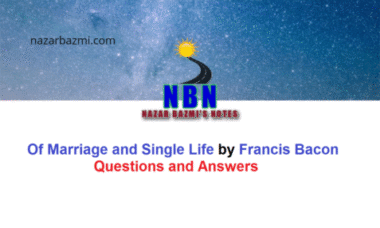
What is the dominant theme of Francis Bacon’s essay “Of Marriage and Single Life”?
The central theme is the exploration of the advantages and disadvantages of marriage and single life.
How does Bacon describe the benefits of marriage in his essay?
He describes marriage as a source of companionship, support, and the continuation of family.
According to Bacon, what are the potential drawbacks of marriage?
The potential drawbacks include restrictions on personal freedom and the responsibilities of managing a household and family.
How does Bacon describe “single life” in his essay?
He defines single life as a state of being unmarried and independent.
According to Bacon, what are the advantages of the single life?
The advantages include greater personal freedom, the ability to focus on one’s own pursuits, and less responsibility.
How does Bacon view the relationship between marriage and personal growth and ambition in his essay?
He views marriage as potentially limiting personal growth and ambition. While the single life can offer more opportunities for individual pursuits.
What does Bacon mean by “He that hath wife and children hath given hostages to fortune” in his essay?
He means that those who are married and have children are more vulnerable to the uncertainties and risks of life.
How does Bacon describe the concept of “an encumbered estate” in relation to marriage in his essay?
He describes it as the burden of responsibilities and financial obligations that come with marriage and a family.
What is Bacon’s view on the potential influence of a spouse on one’s character and choices in life?
He suggests that a spouse can influence one’s character and decisions, potentially leading to compromises or changes in behavior.
How does Bacon view the concept of “freedom in a land” in relation to the single life in his essay?
He views it as the personal freedom and independence that the single life can provide, allowing individuals to focus on their own interests and pursuits.
What does Bacon advise regarding the consideration of marriage or single life in his essay?
He advises individuals to carefully consider their own circumstances, goals, and temperament before deciding on marriage or the single life.
How does Bacon relate the concept of “wanton wives” to the discussion of marriage in his essay?
He suggests that marriages with unfaithful or promiscuous wives can lead to distress and unhappiness.
How does Bacon view the role of marriage in shaping a person’s priorities and lifestyle in his essay?
He views marriage as a factor that can shift a person’s priorities from individual pursuits to family and household responsibilities.
What is the potential impact of the “plague of custom” in relation to marriage and single life, according to Bacon’s essay?
The “plague of custom” refers to societal norms and expectations, which can pressure individuals into marriage, sometimes against their best interests.
How does Bacon describe the concept of “restraint” in relation to the single life in his essay?
He describes it as the ability to pursue one’s interests and ambitions without the constraints and responsibilities that come with marriage.
What does Bacon mean by “the best works, and of greatest merit for the public, have proceeded from the unmarried or childless men” in his essay?
He means that some of the most significant contributions to society have come from individuals who were not burdened with the responsibilities of marriage and family.
How does Bacon advise individuals to balance the considerations of marriage and the single life in his essay?
He advises individuals to carefully evaluate their personal goals and circumstances, considering whether marriage or the single life aligns with their aspirations.
What is the potential influence of “care” and “peace” on one’s life choices, according to Bacon in his essay?
Care and peace can influence a person’s decision to choose either marriage, which may bring care and responsibility, or the single life, which may bring peace and independence.
How does Bacon view the concept of “the good of the public” in relation to the single life in his essay?
He suggests that unmarried individuals may be more likely to contribute to the greater good of society as they have more time and resources to do so.
What does Bacon mean by “he was more wise alone than in a multitude” in his essay?
He means that some individuals make wiser decisions and choices when they are alone and independent, rather than influenced by the opinions and expectations of others.
How does Bacon describe the role of “change of place” and “vacation” in the context of the single life in his essay?
He describes them as benefits of the single life, offering opportunities to travel and take breaks from daily routines.
What is the potential impact of “expediency” and “convenience” in the decision to marry, according to Bacon in his essay?
Expediency and convenience can be influential factors in the decision to marry, especially when practical considerations play a significant role.
How does Bacon conclude his essay on marriage and single life?
He concludes by highlighting that the choice between marriage and the single life is a personal one and should be made with careful consideration of one’s individual circumstances and goals.
What is the primary message that Bacon conveys in his essay “Of Marriage and Single Life”?
The primary message is that the choice between marriage and the single life should be made thoughtfully, considering one’s goals and circumstances.
How does Bacon suggest that individuals should approach the decision of marriage or single life in their lives?
He suggests that individuals should carefully assess their personal goals, temperament, and circumstances when making the decision.
What is the role of societal norms and expectations in shaping people’s views on marriage and single life, according to Bacon’s essay?
Societal norms and expectations can influence people’s choices, sometimes pressuring them into marriage or the single life against their preferences.
How does Bacon view the potential influence of a spouse on one’s character and choices in life?
He suggests that a spouse can have a significant influence on one’s character and decisions, potentially leading to compromises or changes in behavior.
What does Bacon mean by “the single life is the more active”?
He means that the single life often allows for more active and independent pursuits, as individuals have fewer familial responsibilities.
How does Bacon describe the concept of “narrowness of heart” in relation to marriage in his essay?
He describes it as a potential narrowing of one’s focus and interests due to the responsibilities and obligations of marriage.
How does Bacon view the potential consequences of living a life solely for oneself in the context of the single life?
He suggests that a life solely for oneself, without family responsibilities, may be less fulfilling and may lack a sense of legacy and continuity.
- Francis Bacon Essays Questions and Short Answers
- Of Study by Francis Bacon Questions and Short Answers
- Francis Bacon essay Of Truth Questions and Short Answers
- Of Revenge by Francis Bacon Questions and Short Answers
- Francis Bacon essay Of Ambition Questions and answers
- Of Adversity by Francis Bacon Questions and Answers
- Of Death by Francis Bacon Question and Answers
